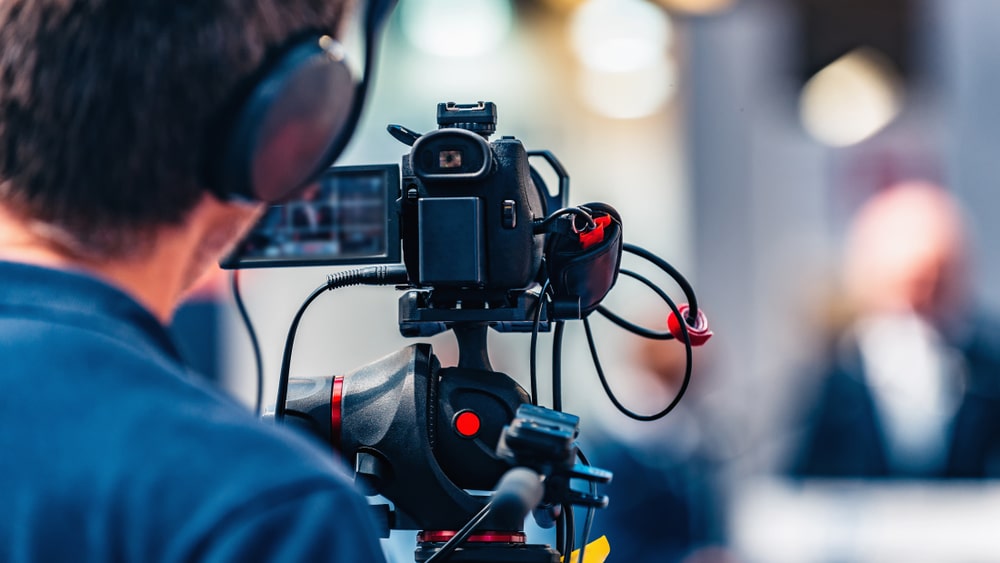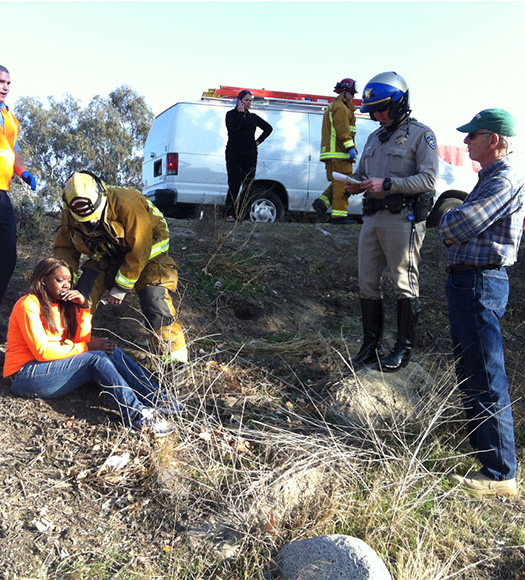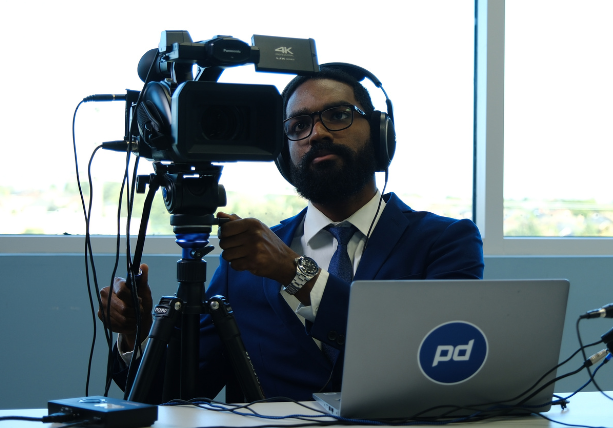The Importance of Legal Video Depositions in Modern Legal Providers: What You Need to Know
Legal video clip depositions have actually ended up being essential in today's lawful landscape. They supply a multidimensional view of witness testimonies that traditional records just can not match. By catching both non-verbal and verbal interaction, these depositions improve the overall understanding of a witness's reliability. Nonetheless, the performance of video depositions depends upon numerous variables, consisting of compliance with lawful standards and ideal methods (legal video depositions). Checking out these elements exposes their true value in modern-day legal solutions
What Are Legal Video Clip Depositions?
Legal video depositions offer as an important tool in the lawsuits procedure. They entail recording witness statements in a video clip format, capturing both non-verbal and spoken interaction. This method permits attorneys to record the disposition, expressions, and reactions of witnesses, providing a richer context for the testimony. Normally performed in a controlled atmosphere, these depositions are led by lawyers that ask inquiries while a stenotype reporter documents the dialogue. The resulting video can be important for test prep work, as it allows legal representatives to analyze the reliability of witnesses and refine their methods. Furthermore, lawful video depositions can be used in various legal contexts, ranging from civil disputes to criminal cases. The visual and auditory elements of video depositions enhance the presentation of proof, making it an essential component in the modern legal landscape. In general, they contribute substantially to the efficiency and effectiveness of legal procedures.

Advantages of Video Depositions Over Conventional Methods
Video depositions offer numerous benefits contrasted to traditional methods of taking witness testimonies. One considerable benefit is the ability to capture both aesthetic and audio aspects, offering a much more extensive record of the witness's statements. This twin style improves clarity and permits attorneys to reference specific nuances throughout trial preparation. In addition, video depositions facilitate remote engagement, making it much easier for witnesses who might be not available for in-person looks because of geographical constraints or wellness issues.Moreover, video depositions can expedite the general deposition process, lowering the time and prices associated with travel and logistics. They additionally improve ease of access, as videotaped depositions can be quickly shared amongst legal groups and referenced at any moment. This convenience adds to better situation monitoring and prep work. In general, video clip depositions represent a contemporary, efficient technique to gathering witness statements, straightening with the developing demands of the legal occupation.
The Role of Body Language and Tone in Testimonies

In legal video depositions, body language and tone play crucial duties in sharing a witness's reliability and dependability. Nonverbal signs can provide insights into a witness's mood, affecting just how their testimony is perceived. Understanding the impact of these aspects is necessary for jurors and lawyers alike when examining the integrity of a testament.
Nonverbal Interaction Insights
While spoken communication is commonly stressed in legal testaments, nonverbal cues such as body language and tone play an essential role in sharing integrity and feeling. Onlookers of depositions might keep in mind that a witness's stance, motions, and faces can substantially affect assumptions of dependability. As an example, constant eye get in touch with may signal confidence, while avoiding gaze can recommend deceit or discomfort. Similarly, the tone of voice-- its rate, quantity, and pitch-- can pass on sensations of genuineness or unpredictability. Lawyers should be in harmony with these nonverbal signals, as they usually supply vital context that matches spoken words. Recognizing these subtleties can improve the efficiency of depositions and affect the result of legal process.
Emotional Tone Influence
The emotional tone shared during lawful testimonies greatly affects how a witness is viewed. Body language, singing inflections, and face expressions play essential functions in forming the narrative of a testament. A witness displaying self-confidence with constant eye call and a calm tone can impart a feeling of dependability and involvement. Conversely, indicators of stress and anxiety, such as fidgeting or an unsteady voice, may result in hesitation concerning their account. The nuances of psychological expression can influence the analysis of realities, making it essential for legal professionals to acknowledge these signs. In video depositions, the acoustic and visual elements integrate, stressing the significance of emotional tone in communicating genuineness and truthfulness within the legal procedure.
Reliability and Dependability
An essential consider establishing trustworthiness and reliability during statements hinges on the witness's body language and tone of voice. Observers frequently rely upon non-verbal signs-- such as eye call, posture, and gestures-- to examine a witness's genuineness. As an example, a witness that preserves eye get in touch with and shows open body language may be regarded as even more straightforward and reputable than one who prevents eye call or shows up shut off. Furthermore, intonation plays a necessary role; a consistent, calm tone can strengthen the reputation of the testament, while fluctuations in pitch or volume might elevate questions. Eventually, the combination of body language and singing tone substantially affects exactly how a witness's statements are received and interpreted in a lawful context.
Ideal Practices for Carrying Out Video Depositions
Conducting video clip depositions needs careful preparation and execution to assure a effective and clear presentation of testimony. It is important to pick a peaceful, well-lit this area to reduce diversions and protected optimal video clip quality. The devices should be examined ahead of time, consisting of cams, microphones, and illumination, to avoid technical issues throughout the deposition.Next, parties entailed need to evaluate the style and treatments in advance, making certain that everyone recognizes their roles. The deponent must be oriented on the process, consisting of how to respond plainly and concisely.Additionally, keeping a professional temperament throughout the session is vital. This consists of avoiding speaking over one another and validating that all inquiries are directed properly. Lastly, it is critical to tape-record the deposition in a format that enables for very easy playback and testimonial, preserving the integrity of the statement for future usage.
Lawful Factors To Consider and Conformity Issues
Exactly how do lawful factors to consider and compliance problems affect the efficiency of video depositions? Attorneys need to browse a complicated landscape of guidelines, making certain that video clip depositions stick to administrative policies and criteria. Compliance with laws worrying personal privacy, consent, and videotaping approaches is necessary. For circumstances, getting specific authorization from all celebrations entailed is necessary to prevent legal repercussions.Additionally, the admissibility of video clip proof in court can rest on conformity with procedural requirements. Ensuring that the tools utilized meets technological standards is additionally important, as inadequate high quality can undermine the deposition's reliability.Moreover, lawyers should recognize any type of specific state regulations that govern video depositions, as these can differ significantly. Failing to deal with these factors to consider can not only threaten the stability of the deposition yet also affect the total case approach, ultimately influencing the client's legal end results.
How Video Depositions Impact Court Perception
While video depositions can function as effective tools in legal process, their influence on jury perception is considerable. The aesthetic and acoustic components of video clip recordings provide jurors with a much more thorough understanding of witness disposition, credibility, and emotional reactions. This multimedia technique can boost the jurors' ability to evaluate the dependability of testament contrasted to standard text-based transcripts.Moreover, video clip depositions permit jurors to observe body movement, intonation, and facial expressions, all of which can impact their interpretation of the witness's statements. The presence of a witness on display can humanize them, fostering empathy and connection, which may sway jurors' opinions. Alternatively, a witness that shows up untrustworthy or evasive on video may lead to negative perceptions that affect a court's choice. Ultimately, the vibrant nature of video depositions plays a vital role in shaping how jurors interpret proof and reach their judgments.
The Future of Video Depositions in Legal Technique
As improvements in modern technology proceed to improve the legal landscape, the future of video depositions is poised for considerable development. Innovations such as expert system, digital fact, and improved video conferencing he has a good point devices are expected to streamline the deposition process and enhance availability. Attorneys might utilize AI-driven analytics to evaluate witness reputation and situation toughness a lot more effectively.Moreover, the combination of digital fact could permit courts to experience immersive simulations of depositions, offering deeper context and understanding. Additionally, the pattern towards remote depositions is likely to persist, supplying greater versatility for attorneys and customers alike.As remote work comes to be progressively stabilized, video depositions will likely come to be common practice, decreasing prices and time restraints connected with typical approaches. In general, these technical innovations promise to improve the performance, effectiveness, and availability of video clip depositions in legal method, ultimately changing how attorneys prepare for test.
Regularly Asked Concerns
Just How Much Do Lawful Video Clip Depositions Usually Expense?

Can Video Depositions Be Utilized in Any Kind of Instance?
Video depositions can be used in numerous kinds of cases, including civil, criminal, and household legislation. Their flexibility allows attorneys to existing witness testaments efficiently, adjusting to the details needs of different lawful circumstances.
What Equipment Is Required for a Video Deposition?
To perform a video clip deposition, essential devices consists of click to find out more a high-quality camera, microphone, lighting, and a reputable recording tool. Additionally, a computer with editing software might be essential for post-production and formatting the final video.
The length of time Does a Regular Video Clip Deposition Last?
A normal video deposition lasts between 2 to four hours, relying on the intricacy of the case and the number of concerns postured. Extensive sessions may take place, but breaks are normally integrated for participant convenience.

Are Video Clip Depositions Admissible in Court?
Video depositions are typically admissible in court, supplied they adhere to lawful requirements and regulations of evidence. Their usage enhances clearness and preserves witness testament, helping in the judicial procedure during tests and hearings. Legal video depositions have actually come to be crucial in today's lawful landscape. Additionally, lawful video clip depositions can be used in numerous legal contexts, varying from civil disagreements to criminal cases. Additionally, video clip depositions assist in remote involvement, making it easier for witnesses who may be inaccessible for in-person looks due to geographical restrictions or health issues.Moreover, video clip depositions can expedite the total deposition process, decreasing the time and expenses linked with traveling and logistics. Ensuring that the devices utilized satisfies technical standards is likewise essential, as bad quality can undermine the deposition's reliability.Moreover, lawyers have to be aware of any particular state laws that regulate video clip depositions, as these can vary greatly. Additionally, the pattern towards remote depositions is most likely to continue, offering higher flexibility for attorneys and customers alike.As remote work ends up being increasingly stabilized, video clip depositions will likely become standard method, decreasing expenses and time constraints connected with traditional approaches.